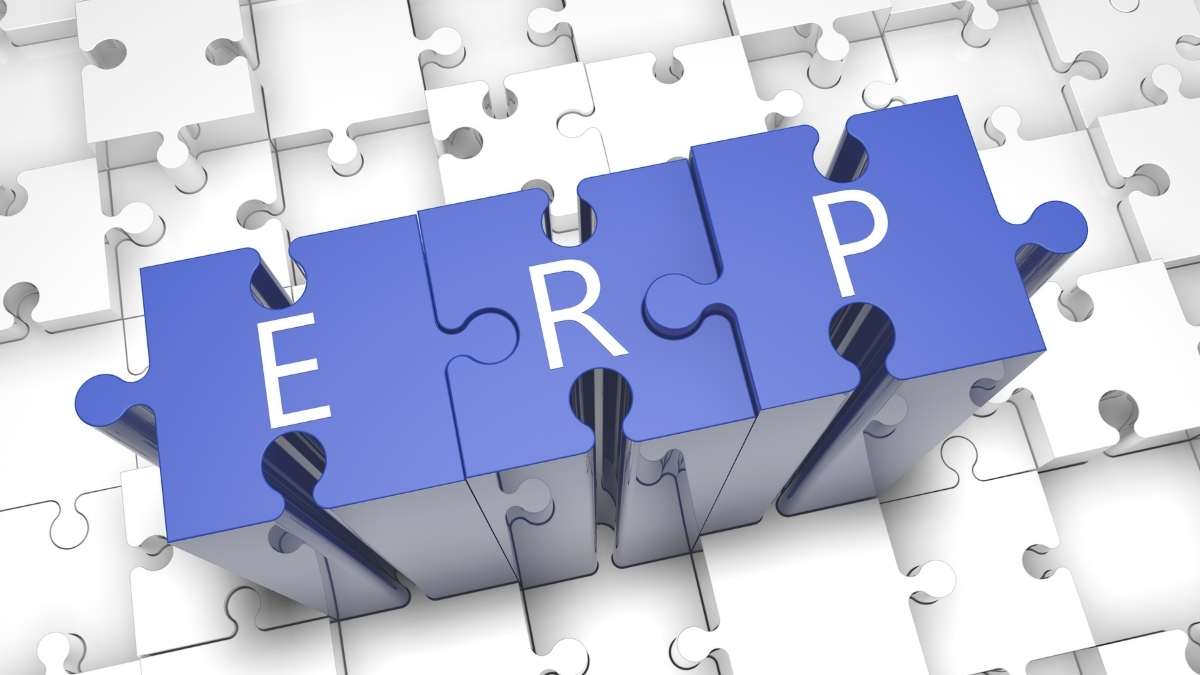.png)
What is SAP ERP? Features, Modules, and Alternatives
Introduction
Discover what SAP ERP is, its key features, core modules, and top alternatives. Learn how SAP ERP streamlines business operations and supports enterprise growth.
In today's fast-paced business environment, organizations need powerful tools to manage their operations efficiently. SAP ERP (Enterprise Resource Planning) has emerged as one of the most comprehensive solutions for businesses seeking to integrate and streamline their core processes.
This article explores what SAP ERP is, its key features, essential modules, and viable alternatives for businesses of all sizes.
Understanding SAP ERP
SAP ERP is an enterprise resource planning software suite developed by SAP (Systems, Applications, and Products in Data Processing), designed to integrate and manage a company's core business processes. At its heart, SAP ERP uses a centralized database to consolidate information from various departments, creating a unified system that eliminates data silos and ensures every team works with the same, up-to-date information.
The software acts as a comprehensive solution that connects finance, human resources, sales, manufacturing, supply chain, and other critical business functions into one cohesive platform. This integration provides organizations with a single source of truth, enabling better coordination, faster decision-making, and improved operational efficiency.
What sets SAP ERP apart is its modular architecture. Companies can implement only the modules they need and scale the system as their business grows. This flexibility makes SAP ERP suitable for organizations ranging from mid-sized enterprises to large multinational corporations across various industries.
Modern versions of SAP ERP have evolved to incorporate cutting-edge technologies like artificial intelligence, cloud computing, and advanced analytics. These enhancements help businesses stay agile and adapt quickly to changing market conditions, making SAP ERP not just a management tool but a platform for future growth.
Key Features of SAP ERP
Centralized Data Management
One of SAP ERP's most powerful features is its ability to consolidate data into a shared database. This centralization eliminates redundant data entry, reduces errors, and ensures all departments access consistent information. When sales updates a customer order, finance, production, and logistics see the same information instantly, creating seamless coordination across the organization.
Process Automation
SAP ERP automates numerous manual tasks and standardizes processes across the organization. From invoice processing to inventory management, the system handles routine operations automatically, freeing employees to focus on strategic, high-value activities. This automation dramatically increases productivity and reduces the likelihood of human error.
Real-Time Data and Analytics
The system provides real-time visibility into business operations through comprehensive dashboards and reporting tools. Decision-makers can access current financial data, production metrics, inventory levels, and sales performance at any moment. This immediate access to information enables faster, more informed decision-making and helps businesses respond quickly to opportunities or challenges.
Compliance and Risk Management
SAP ERP offers robust features for regulatory compliance and risk management. The system maintains detailed audit trails, enforces approval workflows, and generates compliance reports automatically. These capabilities help organizations meet industry regulations, financial reporting requirements, and internal governance standards while reducing compliance-related risks.
Scalability and Flexibility
Designed to grow with your business, SAP ERP scales from supporting a single location to managing global operations across multiple countries and currencies. The modular structure allows organizations to add functionality as needed, ensuring the system continues to meet evolving business requirements without requiring a complete replacement.
Integration Capabilities
SAP ERP seamlessly integrates with other enterprise systems, third-party applications, and modern technologies. Whether connecting to CRM platforms, e-commerce solutions, or business intelligence tools, SAP ERP serves as the central hub that brings all business systems together.
Essential SAP ERP Modules
Financial Accounting (FI)
The Financial Accounting module forms the backbone of financial management in SAP ERP. It handles all financial transactions, including general ledger management, accounts payable, accounts receivable, asset accounting, and bank accounting. This module ensures accurate financial records, supports multiple currencies and tax jurisdictions, and generates comprehensive financial statements that meet international accounting standards.
Sales and Distribution (SD)
The SD module manages the entire order-to-cash process, from customer inquiries and quotations to order processing, shipping, and invoicing. It handles pricing, credit management, and customer relationship tracking. By integrating with inventory and production modules, SD ensures that sales commitments align with available inventory and production capacity.
Production Planning (PP)
Production Planning synchronizes manufacturing operations with demand forecasts and material availability. The module handles production scheduling, capacity planning, shop floor control, and quality management. It ensures that production resources are utilized efficiently and that finished goods are available when customers need them, while minimizing inventory holding costs.
Material Management (MM)
The MM module controls all aspects of procurement and inventory management. It manages vendor relationships, purchase requisitions and orders, goods receipts, invoice verification, and warehouse operations. By optimizing inventory levels and streamlining procurement processes, this module helps reduce costs while ensuring materials are available when needed.
Human Resources (HR)
SAP's HR module, also known as Human Capital Management, supports the entire employee lifecycle. It handles recruitment, personnel administration, time management, payroll processing, benefits administration, and talent development. The module helps organizations manage their workforce effectively while ensuring compliance with labor regulations.
Controlling (CO)
The Controlling module provides tools for internal cost management and profitability analysis. It includes cost center accounting, profit center accounting, product costing, and profitability analysis. This module helps management understand where costs occur, which products or services are most profitable, and how to optimize resource allocation.
Quality Management (QM)
The QM module ensures product and service quality throughout the organization. It manages quality planning, inspection processes, quality notifications, and quality certificates. By integrating quality checks into procurement, production, and sales processes, this module helps maintain consistent quality standards.
Plant Maintenance (PM)
Plant Maintenance manages the inspection, maintenance, and repair of company assets and equipment. It handles preventive maintenance scheduling, breakdown maintenance, maintenance history tracking, and spare parts management. This module helps maximize equipment uptime and extend asset lifespans.
Benefits of Implementing SAP ERP
Organizations that implement SAP ERP experience numerous advantages that directly impact their bottom line and competitive position. The system increases productivity by automating routine tasks and standardizing processes, allowing employees to focus on activities that drive business value.
SAP ERP provides deeper business insights through its unified view of company-wide data. Managers can analyze trends, identify opportunities, and spot problems before they escalate. This visibility enables proactive management rather than reactive firefighting.
The software accelerates reporting processes, making it easier to generate financial statements, management reports, and regulatory filings. Real-time dashboards provide instant visibility into key performance indicators, enabling faster response to business conditions.
Risk management improves significantly with SAP ERP. The system provides greater control over business operations, ensures compliance with regulations, and helps predict potential risks through advanced analytics. This comprehensive oversight reduces the likelihood of costly errors or compliance violations.
Perhaps most importantly, SAP ERP improves business agility. With real-time data access and integrated processes, organizations can adapt quickly to market changes, customer demands, and new opportunities. This flexibility becomes a competitive advantage in rapidly changing business environments.
Alternatives to SAP ERP
While SAP ERP is a powerful solution, it may not be the perfect fit for every organization. Several alternatives offer different approaches to enterprise resource planning:
Oracle ERP Cloud provides a comprehensive cloud-based solution with strong financial management capabilities and modern user interfaces. It offers good integration with other Oracle products and competitive pricing for cloud deployments.
Microsoft Dynamics 365 integrates seamlessly with Microsoft's ecosystem, making it attractive for organizations already using Microsoft products. It offers flexibility with both cloud and on-premises deployments and is often more cost-effective for small to mid-sized businesses.
Infor CloudSuite specializes in industry-specific solutions, offering deep functionality for sectors like manufacturing, healthcare, and hospitality. Its cloud-first approach and modern architecture appeal to organizations seeking contemporary technology platforms.
NetSuite (owned by Oracle) is a popular cloud-based ERP particularly suited for small to mid-sized businesses. It offers a simpler implementation process and lower entry costs compared to traditional enterprise ERP systems.
Tally ERP is an excellent alternative, especially for small and medium-sized businesses in India and similar markets. Tally provides robust accounting, inventory management, and GST compliance features at a fraction of the cost of larger ERP systems. It's particularly strong in financial accounting and taxation, making it ideal for businesses that need comprehensive accounting capabilities without the complexity of enterprise-scale systems.
Conclusion
SAP ERP represents a comprehensive solution for businesses seeking to integrate and optimize their core operations. With its modular architecture, powerful features, and extensive functionality across finance, operations, human resources, and more, SAP ERP provides the foundation for efficient, data-driven business management.
The system's ability to consolidate information, automate processes, and provide real-time insights makes it invaluable for organizations operating in complex, competitive environments. However, the choice of an ERP system should always consider factors like organization size, industry requirements, budget constraints, and technical capabilities.
Whether you choose SAP ERP or one of its alternatives, implementing the right enterprise resource planning system can transform your business operations, improve decision-making, and position your organization for sustainable growth in an increasingly digital business landscape.


.svg)







